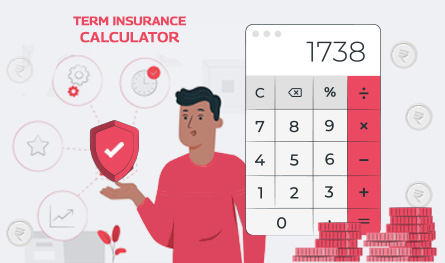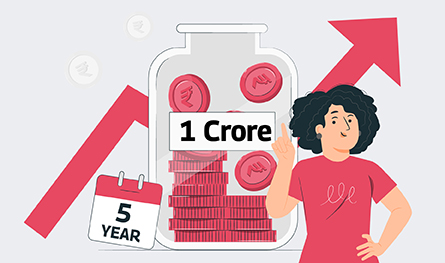Related Articles
 Jan 08, 2025
Jan 08, 2025
Is Varicose Vein surgery covered under the health insurance policy in India
 Health Insurance
Health Insurance
.png)
Health insurance is a prime necessity for one and all. However, due to the complex policy terms and conditions common people get apprehensive while purchasing insurance. This is because of the lack of knowledge and awareness of people in general about insurance policies.
.png)
Even when people purchase a policy, they depend entirely on recommendations and word of mouth of either the policy agents or the people in their close proximity who have used such policies. Thus, most people buy policies without enough knowledge about the same, or without going into in-depth details of the policy.
Further, there are some specific features of health plans that tend to make people all the more confused. But, it is important to know such features while buying an insurance plan to be able to understand your plan and get the desired benefits. Co-payment and deductible are two such important features that you must be aware of. These two features come under fixed costs and do not change with the changing cost of the health care service/policy.
Read on to know about co-payment meaning and other details about co-payment and deductible in the article ahead.
Co-payment, also known as co-pay is an insurance feature. This is a fixed amount that policy owner has to pay for receiving a specific health services, while the remaining amount of co-pay is done by the insurance company, from whom you buy the policy.
Thus, co-pay is like an agreement where insurance holder is required to pay an amount of the medical costs and the insurance provider pays the remaining amount on behalf of the policy owner. The arrangement in co-pay is accomplished with certain clause, which binds both the consumer and the insurance company.
For instance, if you buy a medical plan with the co-payment feature, you pay different amount for different services such as – Rs. 500 for general physician, Rs. 800 for specialist caregiver, Rs. 200 for prescription etc.
So, when you visit a specialist, may be a cardiologist or anyone else, which costs you Rs. 800, then you pay a certain amount of the visit, while the remaining amount is paid by your insurance provider. Here, you may be paying Rs. 600, and the insurance provider will pay the rest Rs.200. Further, if you visit the same caregiver again and again, the same rule will follow for every visit. Thus, in co-pay the payment is shared between the insured and the insurer on the basis of each visit at the caregiver.
Co-pay in health insurance is a feature, which you can use to your advantage if you have good knowledge about the same.
Deductible is the fixed cost that a policy owner is expected to pay to the health insurance provider before the company starts covering him/her under the policy. This amount is paid by the insured person within a particular period, normally one year. The insurer starts covering you for your health expenses once this deductible amount is exhausted within the specified period.
Deductible is a non-refundable cost and is paid on yearly basis. The insured person is likely to pay deductible even if they don’t claim any medical coverage for the year. Also, depending on the amount paid as deductible, the rate of your premium varies; for high deductibles, the premium is low and for low deductible, the premium is high. Deductible amount for personal coverage and for family coverage stays different.
For instance, if the deductible for a plan is Rs. 20,000, then the insured person has to pay for all his treatment from this amount till the amount is exhausted. Now, suppose by the end of the period only Rs. 5000 is remaining of the deductible and you claimed for a treatment for Rs. 8000. In that case, the insurance provider will pay Rs.3000 out of the Rs. 8000 of your claim, as your deductible for that particular period is met.
Thus, a deductible can come to your aid when a disaster strikes. The amount of the deductible is subtracted from your claim payment when you use it for a medical emergency. This way, you can stay secure of any health crisis that strikes you or any member of your family.

Paybima Team
Paybima is an Indian insurance aggregator on a mission to make insurance simple for people. Paybima is the Digital arm of the already established and trusted Mahindra Insurance Brokers Ltd., a reputed name in the insurance broking industry with 17 years of experience. Paybima promises you the easy-to-access online platform to buy insurance policies, and also extend their unrelented assistance with all your policy related queries and services.


Let’s be honest – life insurance planning isn’t exactly someone’s weekend hobby. It is the financial equivalent of flossing: we understand its importance, but we tend to put it off. But somewhere between balancing work and life, you might realise you need to have a solid plan in place – just in case.


If you think of life insurance, chances are you are picturing something people buy in their 30s or 40s. But what if you are 65 or older and just getting started? The good news is that you are never too late. Whether you are thinking of easing the financial burden on your family, covering final expenses, or simply leaving behind a legacy, there are life insurance options tailored just for you.
This article will be a guide to life insurance for senior citizens above 65 years, explaining why it is important, the type of insurance options, and how to get the right policy for you.


Health insurance plans are purchased with the hope of medical protection in times of need. However, sometimes it ends up being a source of surprise and disappointment. This mostly happens when people rush to buy health insurance plans, often overlooking essential aspects. Ignoring waiting period clauses, misunderstanding exclusions, and being unaware of sub-limits can lead to unwanted problems in the future.


If you are looking at investment policies offering INR 1 Crore in 5 years, we talk about some excellent plans in this post to help you choose the best one and reach your goal. However, it is important not to get swayed. Doing proper research and taking advice from financial or insurance advisors is important. Learn about such investment plan in this post.

The last few years have made it very clear that having health insurance is essential for everyone. Whether you are a young professional or a senior citizen, are single or have a family to support, health insurance cannot be ignored. Keeping this in mind, health insurance companies offer comprehensive plans that suit people with varied insurance needs.
